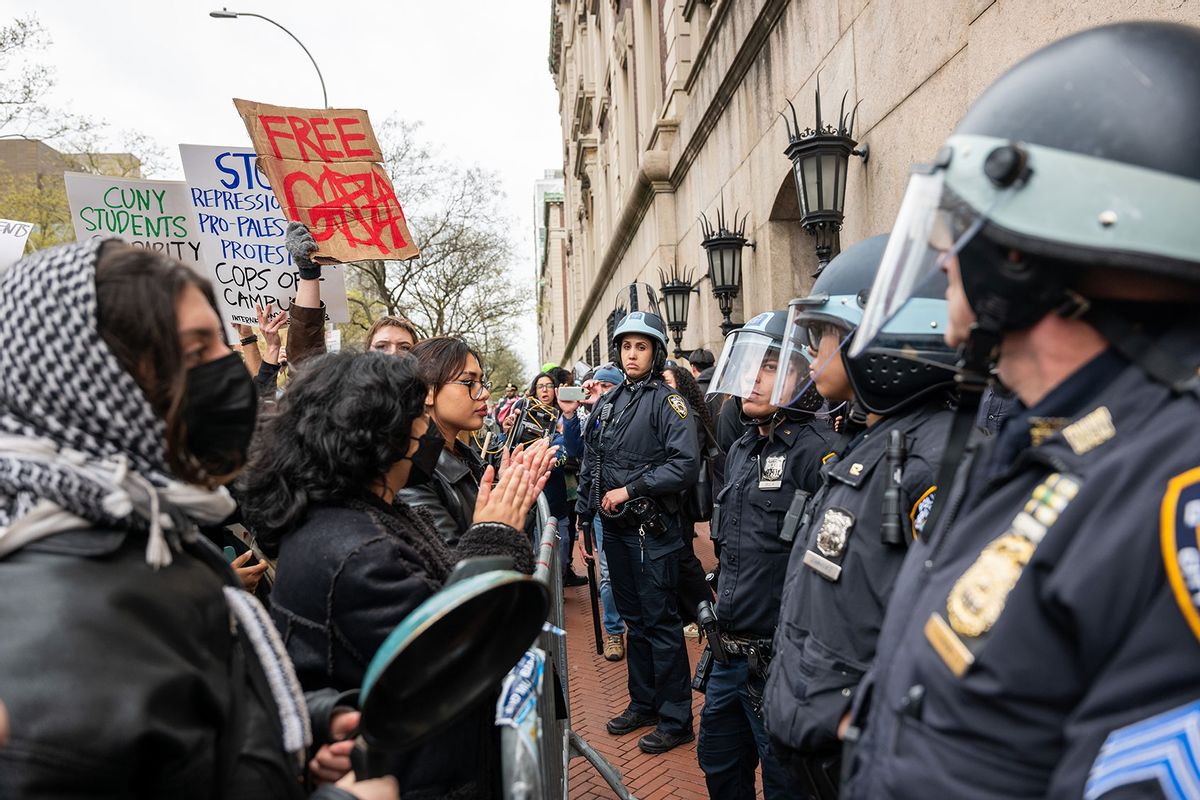Columbia University officials, gambling that a show of force would dissuade pro-Palestine protesters from continuing to mobilize, sent New York City police on Thursday to clear out the protesters' encampment on campus. Police detained more than 100 students with summonses for trespass, all of whom now face the risk of suspension and eviction by the university.
The gamble, however, may have backfired.
Not only are more protesters taking over a different campus location, with donated pizzas in tow, per the New York Times, but students from other universities are gathering on their own campuses in solidarity with the detained Columbia students.
The demonstrations are the latest in a wave of student protests that have called for economic and academic divestment from Israel over its military offensive in Gaza, which has killed around 35,000 people so far, and longstanding discrimination toward Palestinians that critics say amounts to a policy of apartheid.
The arrest and suspension of Rep. Ilhan Omar's daughter, a student at Columbia-affiliated Barnard College, drew further attention to the crackdown.
Columbia President Nemat Shafik, in her request for NYPD assistance on Wednesday, wrote that she had "determined that the encampment and related disruptions pose a clear and present danger to the substantial functioning of the University.” But after the arrests, NYPD John Chell appeared to contradict that assessment, saying later Thursday that "the students that were arrested were peaceful, offered no resistance whatsoever, and were saying what they wanted to say in a peaceful manner."
New York Mayor Eric Adams, who approved of the request for police assistance, has stood by the embattled Columbia president. "Students have a right to free speech. They do not have the right to violate university policies and disrupt learning on campus," Adams said during a news conference on Thursday.
But others, including defenders of academic freedom, have criticized Shafik's actions as a violation of students' rights to political expression. In an interview with the Times, CUNY professor Angus Johnston, an historian specializing in student activism, recalled the 1968 antiwar protests at Columbia University and how student demonstrators back then had taken over whole buildings and offices. The pro-Palestine protesters' takeover of a lawn, by contrast, "is the least disruptive way of occupying space on a campus."
Cracking down on peaceful protests could provoke an escalation, Johnston warned.
“I’m really worried about a spiral in which suppressing protest is going to lead to more aggressive protest," he said.



Shares